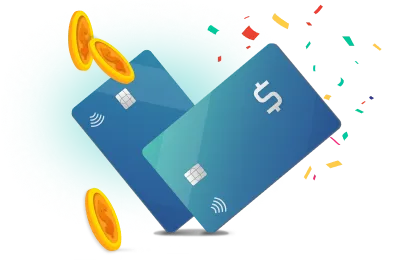Best secured credit cards of 2026
Build or rebuild your credit with a secured card. Get matched to credit cards from our partners based on your unique credit profile.⍉

Get higher approval odds
Great option if you’re having trouble getting approved for a credit card.
Set your credit limit
Control your spending by only depositing as much as you feel comfortable with.
Upgrade in the future
Build your credit, then upgrade to an unsecured card with the same card issuer.
Browse categories
All secured credit cards
7 partner offers
First Latitude Secured Mastercard® Cash Back Rewards
Ongoing APR: | 27.49% Variable |
|---|---|
Rewards: | 1% - 10% (cash back) |
Annual Fee: | $0 |
The opensky® Secured Visa® Credit Card
Ongoing APR: | 23.89% Variable |
|---|---|
Rewards: | 10% (cash back) |
Annual Fee: | $35 |
Capital One Platinum Secured Credit Card
Ongoing APR: | 28.99% (Variable) |
|---|---|
Rewards: | N/A* |
Annual Fee: | $0 |
Credit One Bank® Secured Card
Ongoing APR: | 29.74% Variable |
|---|---|
Rewards: | 1% (cash back) |
Annual Fee: | $0 |
Terms Apply
Rates and feesCapital One Quicksilver Secured Cash Rewards Credit Card
Ongoing APR: | 28.99% (Variable) |
|---|---|
Rewards: | 1.5% - 5% (cash back) |
Annual Fee: | $0 |
First Progress Prestige Secured Mastercard® Cash Back Rewards
Ongoing APR: | 13.49% Variable |
|---|---|
Rewards: | 1% - 10% (cash back) |
Annual Fee: | $49 |
First Progress Select Secured Mastercard® Cash Back Rewards
Ongoing APR: | 17.49% Variable |
|---|---|
Rewards: | 1% - 10% (cash back) |
Annual Fee: | $39 |
How to choose a secured credit card
Look for 3-bureau reporting
Build your credit with a card that reports to all 3 credit bureaus.
Check the minimum deposit
At least $200 is usually required to open a secured credit card.
Watch out for fees
If it has an annual fee, see if it offers other perks, like rewards.
Consider upgrade potential
Switch to an unsecured card once your credit improves.
Start with your FICO® ScoreΘ and see card offers matched to your credit profile.
Get started for free











